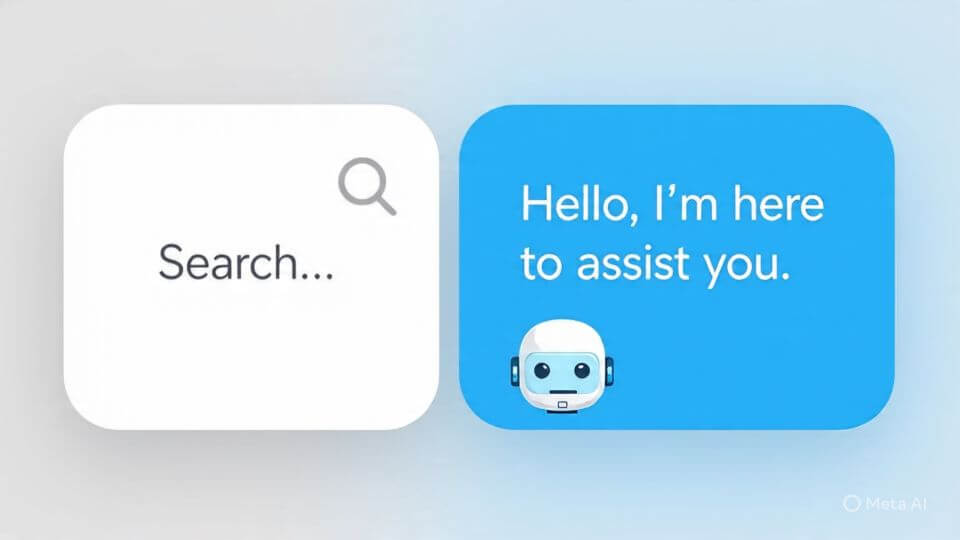Why saying “I’m not a thief” too often makes the algorithm think you are
🧠 The Digital Streisand Effect: When Denial Becomes a Billboard
In the age of algorithmic media, the strongest defense is often a digital disaster.
Politicians, CEOs, and public figures—desperate to shut down a damaging rumor—rush to the keyboard and issue a forceful denial: “I am not corrupt!”
They believe they’ve delivered a clear message of innocence. What they’ve actually done is pay a hefty fee to their digital opponent, ensuring they trend exactly as the rumor described.
Welcome to the Digital Denial Paradox, where wrong messaging delivers the right message wrongly.
🤖 The Algorithm Doesn’t Hear “Not”
The failure here isn’t human. It’s algorithmic.
Search engines and social platforms don’t prioritize nuance. They prioritize keywords.
To a neural network, an emotionally charged denial is simply a strong, repeatable association between a subject and a high-impact term.
You tweet: “I have zero tolerance for ghost employees under my watch.”
The algorithm hears:
- “ghost employees”
- “watch”
- “tolerance”
The modifier “zero” is stripped or de-prioritized. The result? The next time someone searches “ghost employees,” your name pops up. You’ve paid to advertise the very claim you were trying to kill.
🧍 Juan Is Not a Thief (Until He Is)
Let’s say Juan is a public official. He posts: “I am not a thief.”
Then his supporters echo: “Juan is not corrupt!”
Then his critics reply: “Juan says he’s not corrupt, but…”
Suddenly, the algorithm sees: Juan + thief + corrupt + denial + repetition.
Congratulations. Juan is now semantically married to the very thing he tried to escape.
👻 Case Study: The Ghost in the Digital Payroll
Imagine a mayoral candidate, Ms. Chen. A rival leaks a baseless claim: she maintains a payroll of “ghost employees.”
Her PR team panics. For two weeks, her campaign feed is dominated by variations of:
- “I have never had ghost employees.”
- “There are no ghost employees on any city payroll I manage.”
The rival doesn’t need to do anything else. Ms. Chen’s own campaign ensures that anyone searching “ghost employees” sees her face.
She trended not for her policy platform, but for a falsehood she constantly repeated. She became the digital face of the very scandal she was fighting.
🧟 Ugly Is a Keyword, Not a Feeling
Beauty influencers often say:
- “You’re not ugly.”
- “You’re beautiful just the way you are.”
- “You’re not fat—you’re powerful.”
These are meant to uplift. But they reinforce the very labels they’re trying to dismantle.
Because the algorithm doesn’t hear your tone. It just sees: You + ugly + fat + denial + repetition.
And now your content is categorized under the very thing you tried to reject.
🧠 Algorithm vs Your Brain: Filipino Choices
As we explored in Algorithm vs Your Brain, Filipino intelligence is relational, contextual, and quietly brilliant.
We understand subtext. We know when someone says “I’m not corrupt,” it’s often because they’re being accused.
But AI doesn’t get that. It doesn’t read between the lines. It reads the lines. And it builds your reputation from the words you repeat.
📉 You Are What You Post—Even When You’re Denying It
In You Are What You Post, we warned: If your career is built on noise, don’t be surprised when silence feels like failure.
Denial is noise. It’s reactive. It’s algorithmically sticky.
The more you say “I am not corrupt,” the more Google News reinforces the link between your profile and corruption. The more you say “No ghost employees,” the more your name trends under “ghost.”
🔄 The Anti-Messaging Strategy: PIVOT, Don’t Deny
You can’t win by fighting your opponent’s keywords. You win by defining your own.
The only way out of the Digital Denial Paradox is to pivot—immediately—to a positive, keyword-rich statement about your actual value.
| ❌ The Wrong Way (Denial) | ✅ The Right Way (Pivot) |
|---|---|
| “I am not a thief; my accounts are clean.” | “My commitment is to transparent governance. I’m focused on delivering regional infrastructure.” |
| “That rumor about our toxic culture is false.” | “Our culture is built on mentorship and innovation. We just launched a new support program.” |
The pivot takes the viral energy of the accusation and redirects it toward a credible, positive keyword.
This isn’t about silence. It’s about discipline. Talk only about what you are—never what they claim you are not.
🤔 Too Cryptic? Explain Like I’m 12
Imagine you keep saying: “I’m not bad.” “I’m not bad.” “I’m not bad.”
Even if you’re good, people start wondering: “Why does this kid keep saying that?”
Now imagine a robot hears you say “bad” 100 times. It doesn’t care about “not.” It just thinks: You = bad.
That’s how AI works. It doesn’t understand feelings. It understands patterns.
📢 Final Thought: Silence Is a Strategy, Not a Weakness
In the age of AI, denial is dangerous. Every “not” becomes a knot in your reputation.
If you want to be known for integrity, don’t say “I’m not corrupt.” Say “I build systems that protect dignity.” If you want to be known for beauty, don’t say “You’re not ugly.” Say “You are radiant.”
Because in the algorithm’s world, what you repeat becomes what you are.
Control your keywords. Or be controlled by your denials.
Join AIWhyLive.com.. Let’s teach the machine how to listen—by speaking with precision, not panic.







